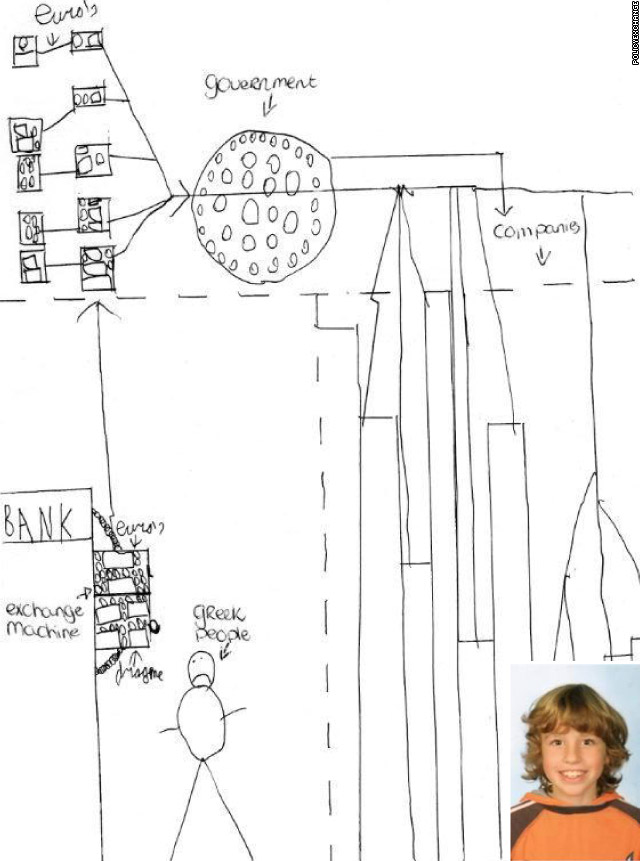I remember Professor said we should post our draft of paper 2 on our blog before the workshop. However, assessing all these articles has taken me more time than expected. So, I am just going to provide a brief layout of my paper:
***********************************
Assessment of literatures pertaining to Democratic Peace
Proponents of Democratic Peace
John R. and Bruce Russett
Argument: Instead of the democratic peace theory, the Kantian liberal theory, which posits that democracy, interdependence and international law and organizations would result in peace within a “federation” of liberal republics[1] – is more capable of explaining pacific foreign relations in a realist, or anarchic, world in which states would promote peace for self-interests.
Evidence: Statistical analysis coving 1885-1992
– “pooled cross-sectional time-series regression analysis of data regarding pairs of states (dyads) observed annually” [2]
– “It considers variance in states’ involvement in militarized disputes across dyads in each year and in dyadic relations through time.”[3]
– “we use the annual mean scores of democracy, bilateral trade as a proportion of gross domestic product (GDP), and joint memberships in IGOs graphed in Figure 1.”[4]
Findings: The “increases in the Kantian influences at the system level may have beneficial effects on the behavior of dyads that are not particularly democratic, economically interdependent, or involved in international organizations.”[6] “All dyads -even those not democratic or interdependent -become less dispute-prone when those systemic Kantian variables increase.”[7]
Assessment: By attributing peace not only to democratic institutions, but also to economic interdependence and membership in international organizations (IGOs), Oneal and Russett’s study would not be convincing enough to support democracy. However, the study suggests that the promotion of democracy would contribute to the Kantian influences and hence international (instead of merely interstate) peace. This implies that by promoting democracy, international norms and institutions would emerge to constrain warring motives between states regardless of their regimes, economic dependency and participation in IGOs.
Allan Dafoe
– Argument: Results from statistically analysis have challenged Gartzke’s claim that “capitalist dynamics explain away the democratic peace relies on results problematically driven by (1) the censoring from the sample of observations containing certain communist countries or occurring before 1966, (2) the inclusion of regional controls, and (3) a misspecification of temporal controls.”[8]
Finding: a (statically significant) co-relation between peace and joint democracy
Assessment: The study only shows a (statically significant) co-relation between peace and joint democracy, but not that between peace and democratic institutions – such as “regular competitive elections, constraints on the executive, liberal norms, or civil rights”[9]. As such, Dafoe’s article is less convincing in promoting democracy given its lack of explanation about such co-relation.
***************************************************************************************
Critics of Democratic Peace
Rosato
Argument: Evidence suggests that the democratic peace theory is flawed, because
– “Democracies do not reliably externalize their domestic norms of conflict resolution and do not trust or respect one another when their interests clash.
– Moreover, elected leaders are not especially accountable to peace loving publics or pacific interest groups,
– Democracies are not particularly slow to mobilize or incapable of surprise attack,
– Open political competition does not guarantee that a democracy will reveal private information about its level of resolve thereby avoiding conflict”
Evidence: The role of mutual trust and respect in preventing aggression between democracies can be easily rebutted by the Cold War, in which America covertly intervened in other democracies which did not have any conflict of interests with itself.[10] The evidence suggests the absence of respect for other democracies on the American part, as contrary to the claim of the theory.[11]
In rebutting the institutional theory, it is argued that democratic leaders are not in general more accountable than autocratic leaders, because both types of leader are equally prone to losing office with their unpopular foreign policy.[12] The uncertain accountability of democratic leaders may have also suggested that the constraint imposed by political mobilization for war is limited. In fact, this argument is evidenced by the classical democracy, America, which has a history of launching wars against other states without getting the consultation and consent from its democratic institutions.[13] In terms of public constraints, it is founded because the costs of war falls on a small proportion of the population in a democracy, public opinion does not usually get affected by their state’s war plan against other states, and therefore the public is unlikely to be enthusiastically anti-war.[14] Besides, if the public perceived a war as a defense of nationalism, they would support the war regardless of the costs.[15]
Assessment: Rosato’s argument is convincing. (Recommendation: Therefore, it would be more effective for our foundation to appeal for Kantian peace rather than democratic peace.)
Recommendation on how to evidence the pacific benefits of democracy
– suggests to readers that the direction of the causal relationship between peace and joint democracy have not been found
– suggest to readers “alternative explanations for the association: random chance, reverse causality, lurking variables, other complex causal relations”[16]
*********************************
– Question:
– Do I need to define democracy again?
– Can I recommend the Foundation not to promote democracy with the democratic peace rationale, which I find as ill-found?






